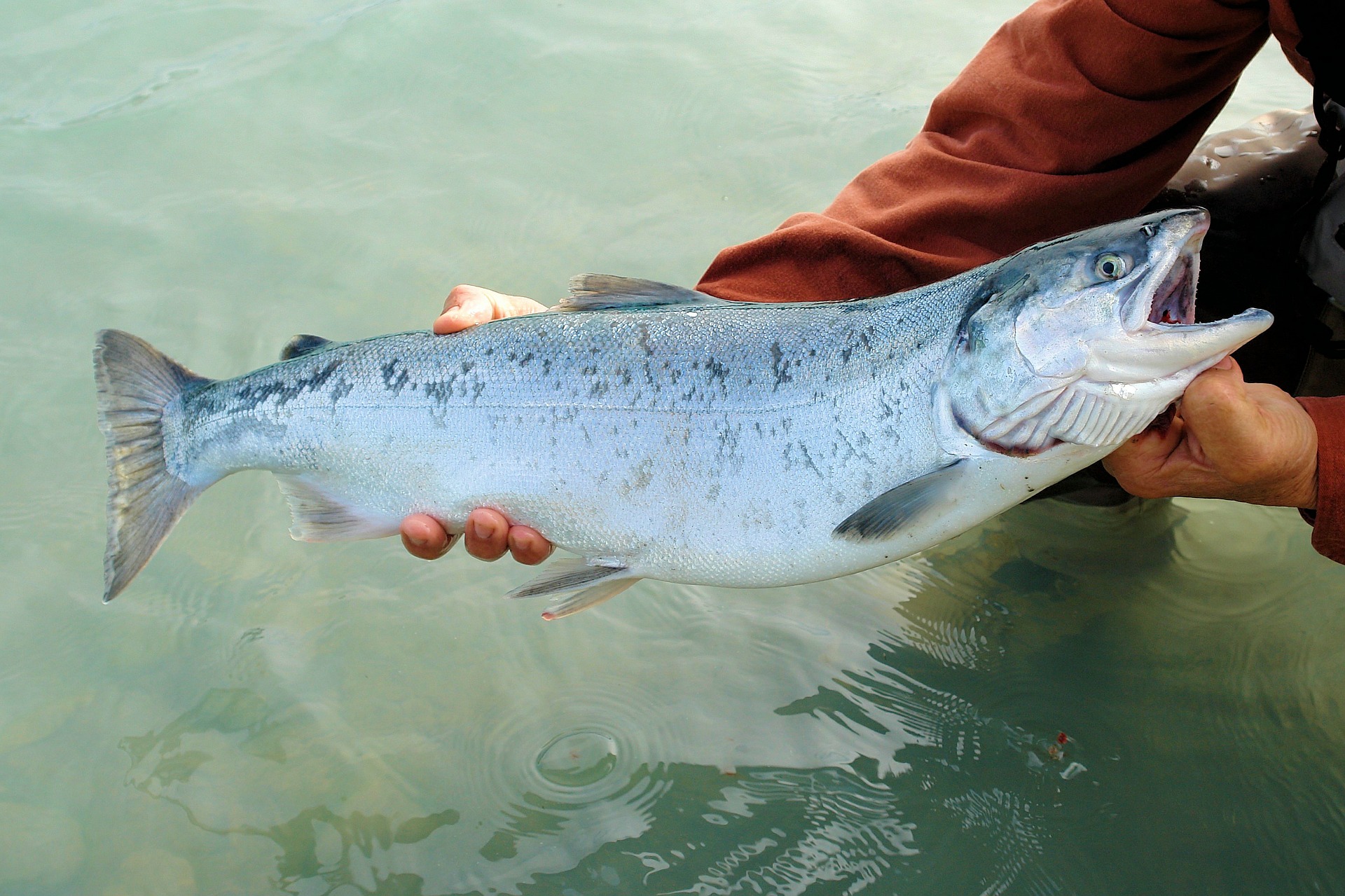Fisheries and Oceans Canada is failing B.C.’s salmon.
This is what environmental groups are saying after Canada’s Pacific salmon fishery lost its Marine Stewardship Council (MSC) eco-certification.
The groups say that the DFO “failed to address issues identified with outstanding conditions in independent fishery audits.”
The industry chose to pre-emptively withdraw from the international certification to avoid failing its upcoming audit and having its certification removed.
The MSC recertified B.C.’s commercial salmon fishery in 2017, subject to DFO addressing outstanding conditions where the fishery does not meet its standard.
They required improvements to fishery monitoring, better stock assessments and reducing impacts on wild salmon populations from harvesting hatchery-raised salmon.
An independent 2018 audit reported that 40 percent of these conditions were behind target.
“MSC sets a very low bar for wild salmon sustainability,” said Watershed Watch Salmon Society executive director Aaron Hill.
Raincoast Conservation Foundation wild salmon program director Misty MacDuffee said this is significant because the certification is what allowed B.C. salmon to be sold into the European market.
“Without that certification, they lose those sales that are going either directly to the EU or to the EU through China. It is significant. It does constrain where the industry can now sell their salmon,” MacDuffee said.
MacDuffee said the council only certifies whether the management system provides for a sustained harvest.
She added that it does not certify whether the fishery meets the needs of ecosystems, bears, whales and other wildlife, or whether it is sustainable in the face of climate change.
She said this sends a message that our salmon are not being well managed.
“It’s not all the industry’s fault. DFO also is responsible for this failure because DFO is ultimately the manager and is the one that needs to be overseeing and making sure that that level of information is obtained. It’s really a black mark that we can’t meet a certification standard like the Marine Stewardship Council.”
She hopes the companies and fisheries will strive for a higher bar.
“And that we’ll be able to ensure that we do have a sustainable fishery and that other certification bodies can be pursued,” MacDuffee added.
Greg Taylor, a fisheries consultant and former industry executive said the inability to meet even minimum standards for sustainability is an indictment of Ottawa’s management of B.C.’s salmon.
“The loss of MSC certification will be particularly noted in major European markets where many retailers require it. It will also mean programs like Ocean Wise, SeaChoice and Seafood Watch will no longer be able to recommend B.C. as a sustainable source of wild-caught salmon.”
“We can’t fish responsibly if we don’t know how many fish are making it back to their streams to spawn,” says Greg Knox from SkeenaWild Conservation Trust, highlighting the erosion of monitoring of B.C.’s salmon populations over the past decade — a key problem identified by the MSC.
“The only real surprise is it took MSC this long to determine DFO’s management system did not meet its requirements for a sustainable fishery.”
“A benefit of the MSC certification is that it requires the fishery to address key gaps, including lack of monitoring, dealing with the risks of hatcheries and protecting salmon biodiversity,” said David Suzuki Foundation senior science and policy analyst Jeffery Young.
“Despite having close to a decade to act, the government has failed to deliver on its promises to help the B.C. fishery meet certification requirements.”
Marine Stewardship Council
The MSC is an international, independent non-profit organization that sets a standard for sustainable fishing.
Fisheries are assessed by a team of experts who are independent of both the fishery and the MSC.
About 300 fisheries and 30,000 wild seafood products from around the world are certified to use the MSC eco-label.






